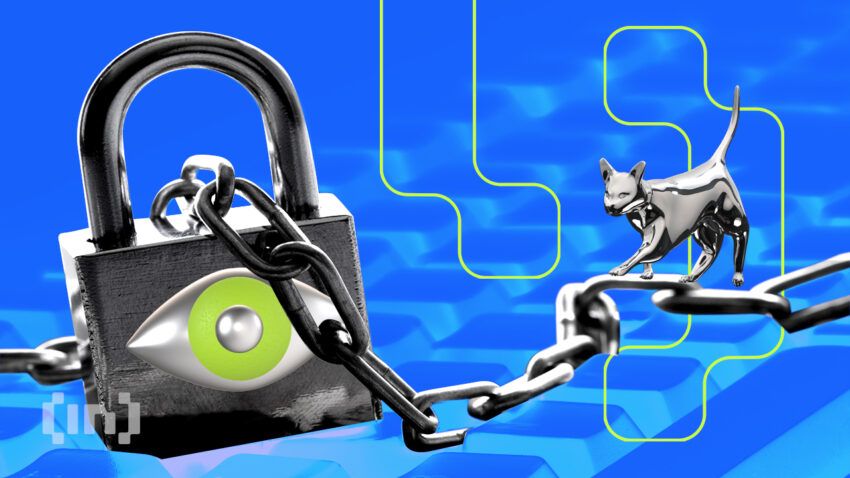The excitement surrounding web3 in the tech community is palpable and hard to miss. This trend is especially relevant for people aiming to step away from traditional work hours and engage with the unique employee challenges in this evolving industry.
Pursuing a career in the emerging field of web3 presents unique challenges. These often stem from evolving regulations, protocols, and shifting trends in user adoption, among other factors. This guide explores ten significant challenges that anyone considering or already working in web3 needs to be ready for.
In this guide:
Common hurdles for employees in web3 startups
Here are the ten most significant challenges you’ll face in a web3 startup, ranging from the sector’s rapid growth to security issues:
1. Regulatory uncertainties and compliance
The uncertainty in crypto regulation in web3 and the wider crypto world is one of the most significant challenges. The legal stance on cryptocurrencies and web3 infrastructure varies widely, ranging from strong support to profound skepticism, depending on the jurisdiction.
This tangled web of varied, ever-shifting regulations influences everything from token design to data privacy practices. Employees must continuously learn about various policy frameworks and adapt quickly to local regulations that can change abruptly to ensure compliance.
Regardless of location, from crypto-friendly places like Switzerland to more cautious environments like China, web3 professionals globally need to invest significant time and effort in understanding relevant laws and regulations. This effort is crucial to ensure their work remains compliant and doesn’t violate any legal boundaries.

Moreover, it also demands nuanced policy analysis and flexibility in transforming that awareness into appropriate internal governance and external engagement. This is undoubtedly a regulatory maze that is a continual stress test for workers’ resilience and commitment to ethical industry growth.
2. Keeping up with web3’s rapid changes is a big challenge
Another big challenge for web3 employees is the evolving nature of blockchain technology. Keeping up with the latest chains, consensus mechanisms, programming languages, frameworks, and toolsets for employees can be challenging. You must continuously upgrade your skills, as the learning curve in this field remains steep and unrelenting.
For instance, imagine you, a seasoned developer, finally cracked the code of building on a decentralized network. Exhilarated, you prepare to conquer the DApp world. But wait! Two new networks sprouted like digital weeds just shortly after, and they are gaining popularity. Even worse, these new networks come with unique architectures, security tradeoffs, governance models, and application stack requirements. This ever-widening complexity contributes to high technical barriers to entry.
Find your dream job
From job vacancies to career advice, the BE[IN]CRYPTO HR Team is here to guide your journey
3. Uncertainty in web3 startups
Working in a web3 startup often requires you to deal with many uncertainties. It is expected, though, considering that the industry is fast-paced. As a result, the industry, while exhilarating, also comes with a significant degree of uncertainty.
In the web3 sector, technological advancements and business models lack a definitive promise of success, leading to uncertainty. This unpredictability makes long-term planning a complex task for web3 employees, as they must navigate an environment where changes can occur swiftly and drastically. This level of unpredictability requires a high tolerance for risk and a flexible mindset, as what works today might not be relevant tomorrow.
/Related
More Articles4. Navigating high-pressure environment in web3 startups

The ethos of disruption and innovation in web3 startups often translates into high-pressure work environments. These companies are typically geared towards shaking up established industries — and as you would guess, it’s the kind of mission that brings with it intense workloads and tight deadlines.
For employees, this means a fast-paced, often demanding work setting where the pressure to deliver can be constant. This environment can be energizing for those who thrive under pressure and are driven by challenges.
However, it can be a significant drawback for individuals who prefer a more relaxed and less demanding work atmosphere. The high-stakes, fast-moving nature of web3 startups requires a certain resilience and a mindset geared towards thriving in a dynamic and somewhat stressful environment.
5. Resource limitations and budget constraints
Many web3 startups operate with limited resources and tight budgets, especially in their early stages. They may find themselves wearing multiple hats, handling a range of tasks that go beyond their primary role.
The scarcity of resources can also mean less access to cutting-edge tools or external services that might make jobs easier. So naturally, this environment requires a high degree of resourcefulness and creativity but can be stressful and challenging, too — especially for those used to working in more resource-rich settings.
6. Cultural and organizational fluidity

The culture in web3 startups tends to be less structured and more fluid than traditional companies. While this can lead to agility and faster innovation, it may also lead to challenges in terms of unclear roles, responsibilities, and expectations.
Employees might face difficulties in internalizing the organizational structure or understanding their career progression paths. This lack of clarity can be confusing and frustrating, but it also gives employees more independence and the opportunity to be proactive and define their own roles within the company.
7. Balancing innovation with practicality
“Web 3.0 is the next stage of the Internet’s development, where the web becomes truly intelligent, and the ability to process data and learn from it becomes the norm.”
Andrew Kelleher, CEO of Cogniac
In web3 startups, employees are typically at the forefront of exploring and developing new technologies. Their work encompasses a range of innovations, such as decentralized applications, smart contracts, blockchain protocols, and various applications of cryptocurrency and decentralized finance (DeFi).
Yet, the emphasis on innovation can sometimes conflict with the need to create user-friendly and practical solutions. Employees often face the challenge of balancing developing cutting-edge technology and ensuring that the end products are accessible and understandable to users.
This challenge is particularly demanding for those tasked with bridging the gap between technology and user needs, such as product managers and UX designers. They must balance creating innovative products while also ensuring these offerings are practical and beneficial for everyday users.
8. Coping with a remote work environment
In web3 startups, traditional office settings and in-person meetings are often replaced by globally distributed remote teams.
This “anytime-anywhere” remote work setup has perks, like working comfortably from home in your pajamas, but it also offers some unique hurdles. Mastering video calls and messages is just the first step. You need to adjust to different time zones of your colleagues as if you were a seasoned traveler. At the same time, you also need to be able to decipher cultural differences to work smoothly with colleagues who might be continents away.
Being a self-starter and a time ninja is a must because, let’s face it, keeping yourself on track without someone peering over your shoulder takes some serious skill. Sure, the freedom is amazing, but building bonds with distant colleagues can be tricky sometimes.
9. Security vulnerabilities

The unique decentralization of web3 has introduced novel security challenges that employees must tackle. For instance, DApps and smart contracts may carry certain vulnerabilities that malicious elements can exploit, leading to breaches. IT teams of any web3 startup should be on a state of constant alert to tackle any such threat with rigorous code auditing and verification methods.
Decentralized organizations also carry risks, considering that any attack on their platform or governance exploits could drain treasuries or manipulate consensus. It is worth noting here that even new privacy tech like zero-knowledge proofs have not had a long enough track record yet to assert themselves as foolproof solutions.
In summary, web3 security is a serious matter. As an employee, constant vigilance is essential and unavoidable. This ongoing alertness is a crucial challenge that cannot be overlooked.
10. Decentralization: A major obstacle for web3 employees
Web3 is still more like the Wild West of the broader tech industry. Gold rushes for new ideas happen every day, but you have to be a smart prospector in the true sense to strike it rich. And that’s precisely where market research comes in.
The biggest challenges here include:
- Identifying your audience: Conducting Market research helps pinpoint who needs your products or services and their location.
- Reaching your ideal customer base: Your product may appeal to various groups, from early adopters to the general public. Therefore, customizing your customer acquisition strategy is crucial.
Embracing and overcoming web3 challenges
Working in a web3 company offers both exciting opportunities and distinct challenges. In this high-pressure, fast-paced environment, employees face a demanding learning curve with blockchain technology.
Moreover, startup culture often involves limited resources, requiring web3 professionals to navigate complex, continually changing obstacles. Successful navigation of these challenges can lead to significant opportunities, as the evolving web3 technologies increase demand for roles combining technical and creative problem-solving skills.
Frequently asked questions
What are some common challenges faced by employees in web3 startups?
How does working in a web3 startup differ from working in traditional tech companies?
What skills are important for a successful career in a web3 startup?
Trusted
Disclaimer
In line with the Trust Project guidelines, the educational content on this website is offered in good faith and for general information purposes only. BeInCrypto prioritizes providing high-quality information, taking the time to research and create informative content for readers. While partners may reward the company with commissions for placements in articles, these commissions do not influence the unbiased, honest, and helpful content creation process. Any action taken by the reader based on this information is strictly at their own risk. Please note that our Terms and Conditions, Privacy Policy, and Disclaimers have been updated.






